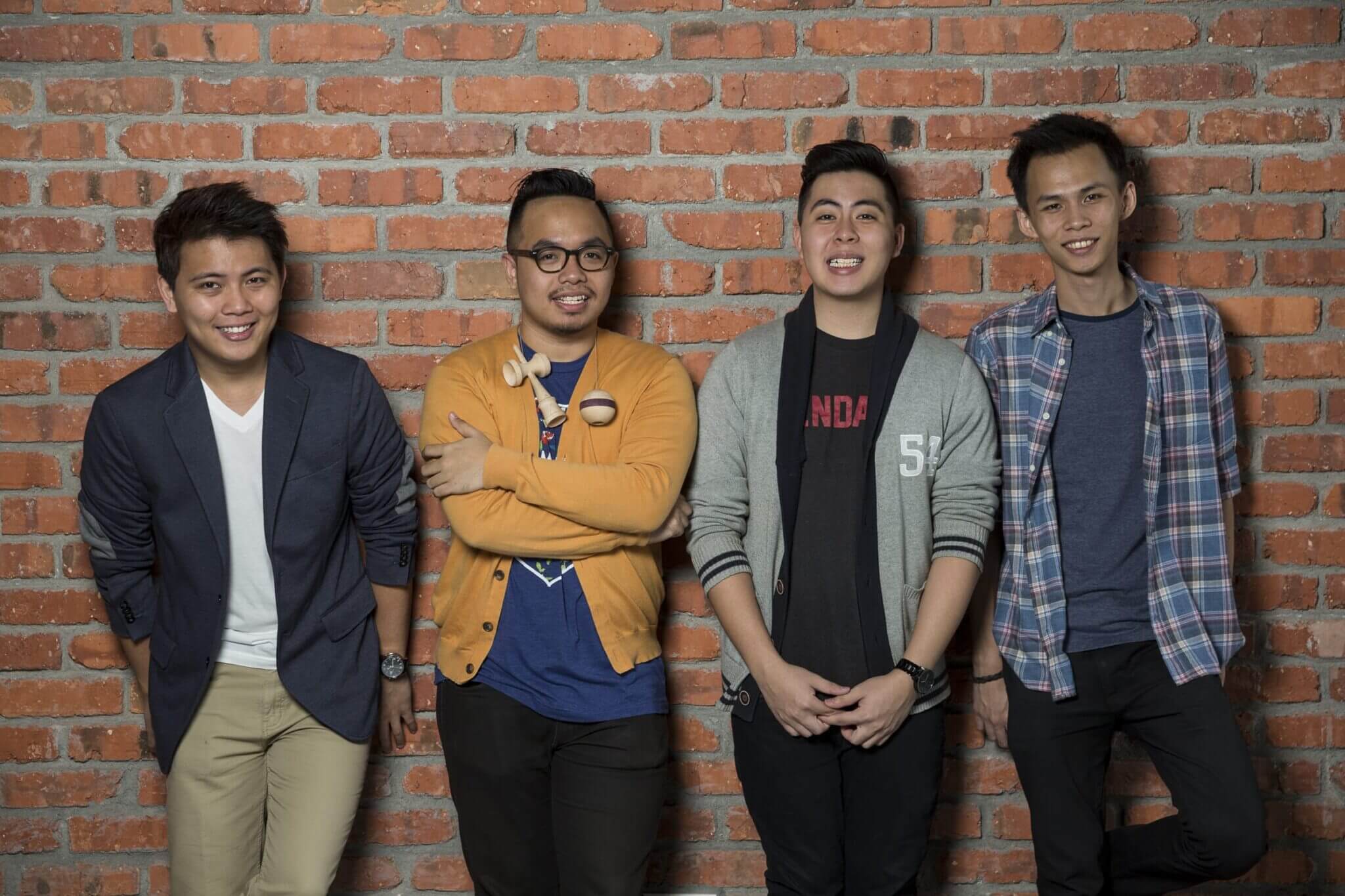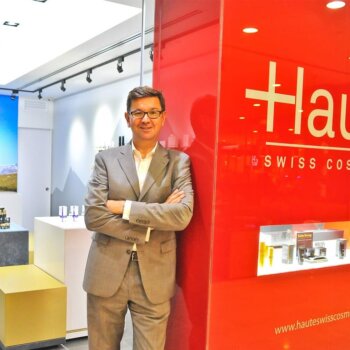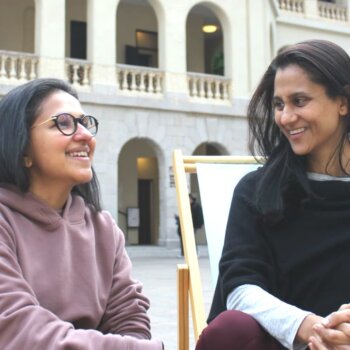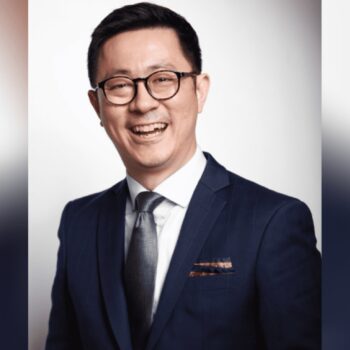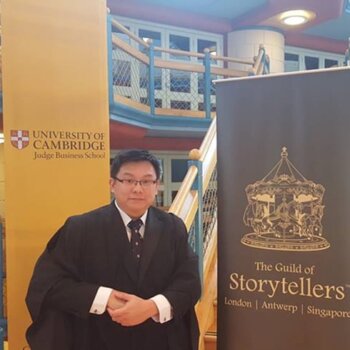We’ve seen you guys all over YouTube but tell us a bit about yourselves.
Ming Han:
My name is Ho Ming Han, but people usually refer to me as just Ming. Currently, I create a lot of online content, act and direct. But I grew up the typical asian child way – studied hard in school and learned piano at the same time. I studied to be an architect since young but when I started the degree, I really learned what passion was and I didn’t have that for the subject. I dropped out and somehow ended up in a Psychology degree, finished it and loved it.
I’ve always appreciated the arts and actually started performing with my brother in a band since we were in high school and college. So when YouTube began for us, it was a new way to express ourselves and let out our creativity as well.
Ming Yue:
And, I’m Ho Ming Yue, or more commonly known as Ming Yue or Ming. One of the Mings from The Ming Thing, I love creating and highlighting the little things in life that we usually tend to oversee. My passions are music, film, tech & gadgets, and people.
In your own words, what do you guys do on YouTube today?
Ming Yue:
I think the easiest way to describe what we do is to call it what it is. Content creators. We make content that we share with people through the internet that hopefully people enjoy and can relate to.
Ming Han:
I would add that my team and myself write, create and produce different forms of content (usually videos) for internet use. Along the way, I get the chance to speak and consult different groups of people about matters related to online and social media as well as creative work in its new forms.
So how tell us about your YouTube story. How did it begin?
Ming Han:
Along my thesis year in my degree (my final year), I randomly decided to vlog about the horrible carpark situation in my university at that time. That required me to start a YouTube channel that I randomly named “dmingthing” because it rhymed with my name and “themingthing” was taken, so I had to use “d” instead.
Amazingly, my first vlog did amazingly well. I had a few thousand views overnight for a totally new channel (which was very very surprising). I tried a two more vlogs and it was at that time I got contacted separately by two different people, Raffi and Bryan. They were both pretty good videographers and both offered to try making videos with me. We shot “Shit Boyfriends Say” and “Alone, Forever” and released them one after the other and even more mind-blowingly, both went viral with more than hundreds of thousand views. A huge level up from the few thousands that the vlogs had.
So we looked at ourselves and said, hey.. this is working out. The rest was pretty much history.
Ming Yue:
I still remember when I was still in England studying, Ming Han started up the channel to complain about his university’ carpark situation. He made a few more videos and when I came back to Malaysia and I joined him and we started putting all our ideas into little videos on the channel.
We’ve always been storytellers since kids, with pretty imaginative minds, so I think we saw YouTube as a way to bring those ideas and stories to life from inside our heads.
Could you guys tell us about the process setting up and growing your YouTube channel?
Ming Yue:
Ming Han made a vlog, and then some short videos with Raffi & Bryan, and then we started to put in a little more effort in those videos. We made a web-series and then more videos.
I guess the channel’s growth was something that just happened, and not something we focused on. We really just wanted to create.
Ming Han:
Honestly, I can’t really recall a “proper” process of doing all that. We just made videos and made some more videos and kept doing that! We’ve never really concentrated on the growth of the channel because we really just focus on writing and making better videos that we’d like to watch. So it was pretty nice having friends and viewers commenting and saying “Hey, you just passed X number of subscribers!” or “Your video has X views!!!”. Yeah its pretty weird but we get told how our channel is doing. Haha.
Were there any major challenges that came with trying to develop the YouTube channel?
Ming Han:
Definitely. When we started, it was really tough getting the right locations to shoot. Doors weren’t really open to us and we literally didn’t have much money at all to book places. Equipment was also really limited. For the longest time we didn’t even use any lights. But really, overcoming this was all about knowing how to use what you have. If you’re good at being resourceful with what you have and become as skilful as you can with the current setup you have, you can make things happen.
Ming Yue:
Also, Ming Han never had any prior training or knowledge in shooting videos, and so Bryan & Raffi were a big part of the channel, bringing their know-how and experience to the table.
Perhaps some memorable difficulties were that we had very limited resources and man-power, which is something we still face today. But we’ve learnt to make do with what we have, and it’s become something we live by today as well.
Where is all of this going? What can we expect from you guys in the near future?
Ming Han:
Nowadays, its more about developing the types of content we make. We’ve always held to the practice of trying new things. So we always take any chance we get to explore a different way of shooting or a different style or writing. Anything that in turn, develops our skills and abilities as well. All this is to make sure we keep growing to do bigger things in the future, be it 5 years or 15. We definitely wanna make bigger forms of content – TV series or even movies.
What are your thoughts on the Malaysian YouTube scene?
Ming Yue:
We’re in a rather interesting point of growth for YouTube here in Malaysia. We’ve actually got quite a few YouTubers that have been around for a while as well.
I think we need to be more courageous when it comes to getting on YouTube, both for creators and as an audience. There’s a lot of talk as to how our Malaysian entertainment scene isn’t on par as countries in the West, and it’s definitely a personal challenge to see that change. YouTube is rich in diversity in the States, and it’s something our local scene needs as well. Not everyone needs to be a comedy-video maker or short-film maker.
If there are people who want to make music videos, or even videos about growing vegetables, I say do it. Being Asians, it’s our strength and weakness that we’re cautious in the things that we do, and critical if it will be a success. But I think if there’s anything we can do that’s different to Asian culture, is to take a risk. As creators, we need to dive into what we’re doing and believe in it, and as content creators, we do just that; create. And as an audience, we need to be more trusting of our local content and creators. That’s going to be the biggest push that Malaysia needs.
Ming Han:
I think its very very different. Much younger than the scene in U.S. and very segregated because of how diverse our culture is. Over there its simple and straightforward because everyone communicates in English as their main language. But here, we have all kinds of languages and dialects and cultures. Its tough to make something that caters to everyone! But its a great challenge! Haha!
What are some of the key challenges that Malaysian YouTubers face?
Ming Han:
I would say the general creative culture in the region would be the main challenge. People value and treat creativity very differently here. Its still extremely difficult for new YouTubers to make YouTubing their full-time job. Mainly because its tough making a living for it. So many people just do it on the side or maybe don’t even start at all because its tough. Even we face challenges working with bigger brands and corporations. Its an ongoing hustle trying to help educate and change their perspectives regarding online content and how its different from traditional content (newspapers, TV, radio). But I guess that’s part of how a new scene grows. And I’m thankful to be part of that.
Ming Yue:
A lot of people we’ve spoken to at events and workshops always ask one particular question when we talk about YouTube. It’s, ‘How do I start?’. And there’s really only one answer to that, it’s, JUST start.
Again, maybe because of our Asian culture, we’re a bit more timid, a bit more reserved in many ways. And I think that doesn’t have to be the case on YouTube. We treat YouTube as a playground to do whatever we want to do and can think of, and that’s the thing that the local scene needs to remember. I think that it’s not about the number of views or subscribers, or how viral a video gets or even how big a channel grows, it’s about content. At the end of the day, it’s content that keeps an audience coming back. We need to just put ourselves into what we create, and not worry about the rest of it. That’s probably a challenge in itself.
Many people find your viewers incredibly funny and entertaining, what is your secret recipe to great YouTube videos?
Ming Han:
We always make videos that AT LEAST we find “watchable”. Haha. Our main “standard” would be ‘would we enjoy it?’. I guess that’s the first step to our recipe. But to really get into that, its about being aware to what’s going on around you. Our country is absolutely rich with all kinds of comedy and stories to be told because of how rich our culture and diversity is. Its really about watching and listening to what is happening around you and making a good story out of that. Or making fun of it. Heheh.
Ming Yue:
I don’t think there’s a recipe for great videos, because if there is, we definitely need it.
Ming Han and I are the ones who come up and write the videos and I guess we both have a similar source of inspiration for it, and it’s life. We love seeing something or someone react to life and that’s what we try to put into our videos. It’s the way we react to life in ways we may or may not notice.
We recently learnt that you guys have also started CORE Studios, tell us about it.
Ming Han:
Basically, that’s the entity that we set up to do more formal work and bigger work. TheMingThing on YouTube has become our image and face into the online social media world. CORE would most probably be the engine behind it. In CORE we work on different things at once. Mostly different videos most people don’t see online because they’re for other brands and people. But you can expect a bigger team. CORE is where we get new people into the team, train and shape individuals and then with that bigger manpower – create bigger things.
What are your personal opinions on Malaysian entrepreneurship?
Ming Han:
I personally think Malaysia is a great place to begin any entrepreneurship. Its a comfortable country with affordable-ish living costs. Its not too high-stress in terms of really needing to get a job, but I find our countrymen very laid back compared to many other countries I’ve visited. I think as Malaysians, we’re always looking out for something that can help our people. And that’s what Malaysian entrepreneurship is mainly based on – serving the citizens of this country better. Be it better food, better clothes or better services, I love that its strongly and uniquely based on the needs and wants of our country.
Ming Yue:
I think it’s booming and has a lot more potential than we realize. People are starting to take risks, trying to ride the trends and really just create something for themselves. As a nation, I think it’s only going to get better in the coming years with the amount of great ideas that are coming out from the people.
Why did you guys decide to do what you do?
Ming Yue:
Passion. That’s probably the biggest influencing factor in why we decided, and even still do what we do. We absolutely love what we do and we love seeing the way people respond to it; the good the bad and the ugly.
Ming Han:
I would say that it really chose us, instead of the other way around. It just worked! And kept on working. So we kept doing it! After university ended, I was already getting a few jobs here and there to make videos for telcos and different brands. So instead of applying for a more normal (and secure) job, I decided to try this out for a year with Bryan and Raffi as a real job. And that year kept on extending!
What are your definitions of success?
Ming Han:
I’ve noticed this definition changes from time to time. But right now, its about doing what you do, effectively and excellently. To a point where people can’t deny you’re good at what you do.
Ming Yue:
I think to me, success is being able to step back from whatever you’re doing and be content about it. Not so much because you’ve achieved or completed something, but because you’re able to let go of what you’re doing and look above it, knowing that there’s just so much to be grateful for.
Any parting tips and words of wisdom for entrepreneurs out there?
Ming Han:
Take the leap. Its always a risk, but big things are always scary. I believe the younger you are, the more you should try. Of course, entrepreneurship can start at any age but start young. So you make more mistakes and learn quicker. When you’re able to be more flexible and mouldable. Just go for it.
Ming Yue:
Do it. Really, just do it. The biggest thing holding us back from succeeding, is the fact that we don’t even try. Get out there, ?igure out what you love doing, do it, and love that you’re doing it.
Connect with the Ming Brothers:
